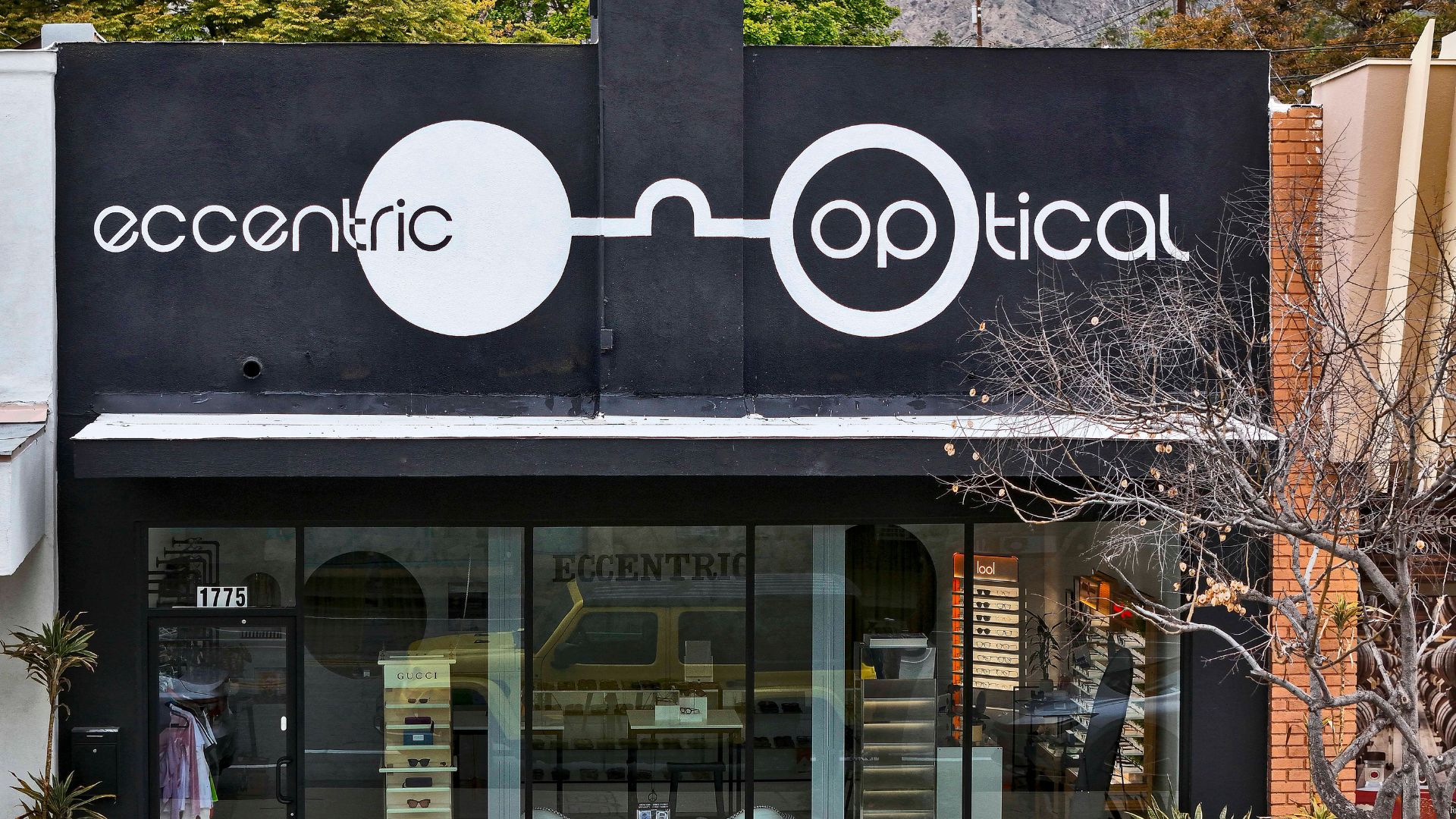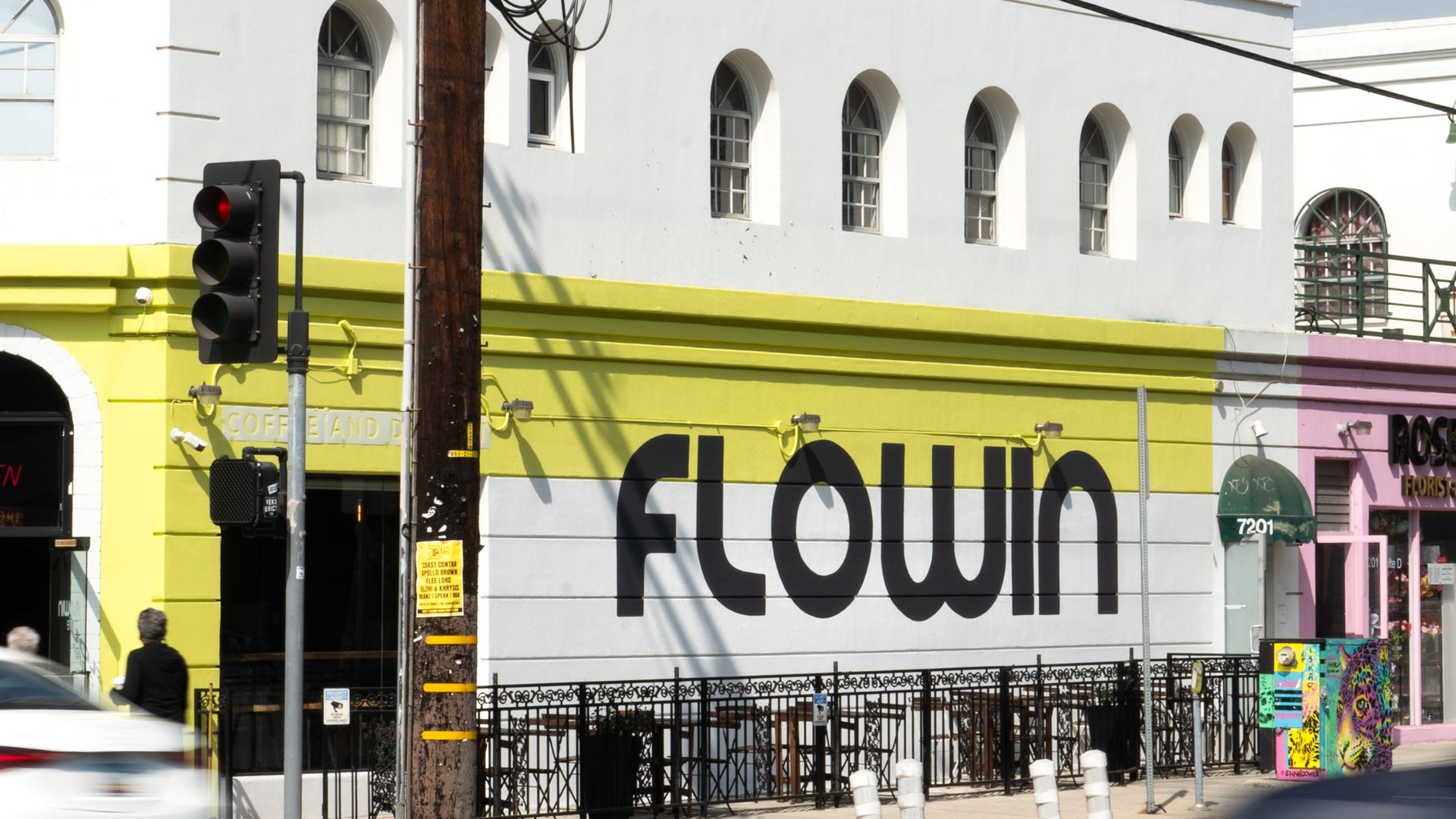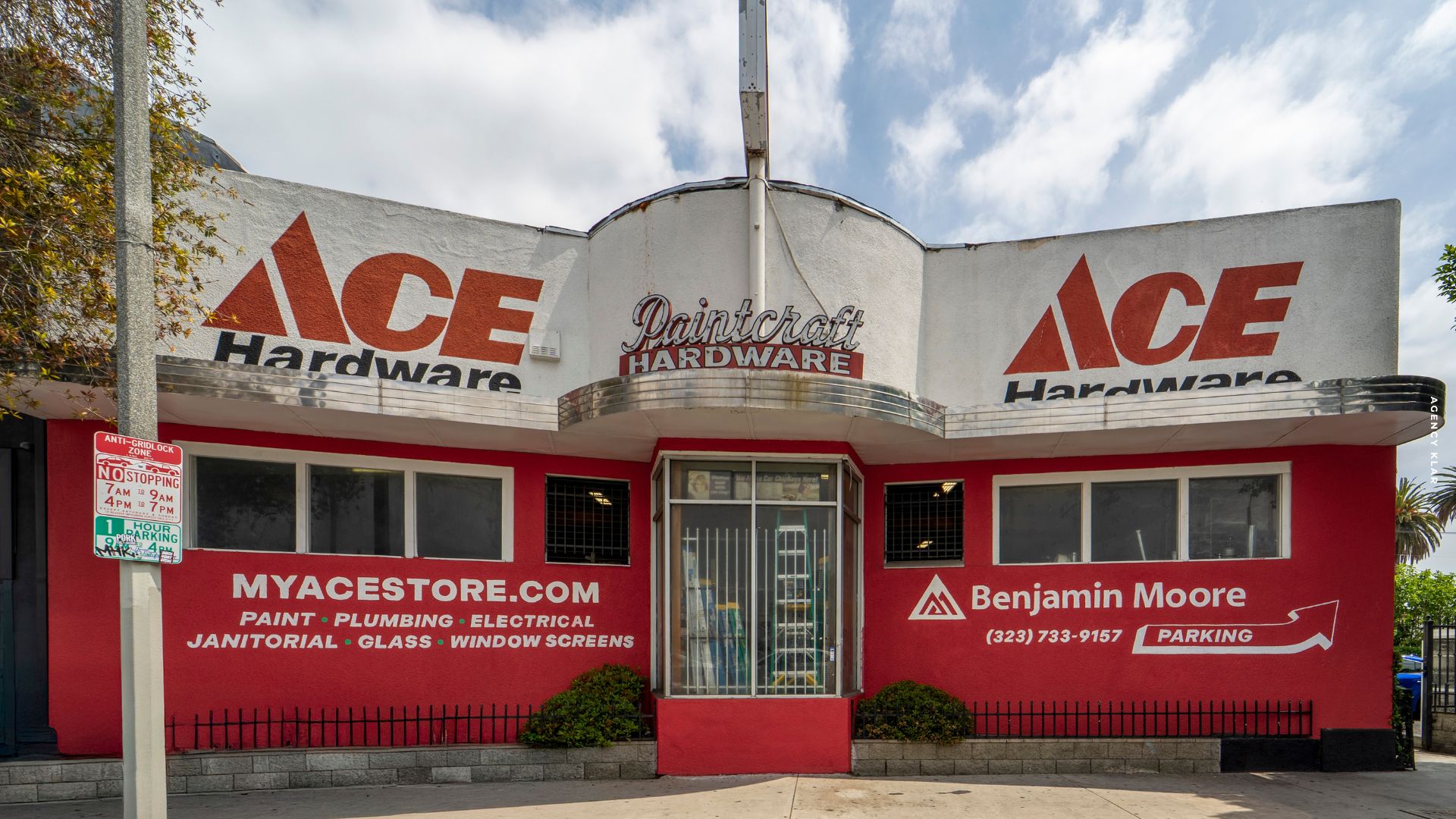I've spent over two decades painting walls, making mistakes, and learning what actually separates professional signage work from expensive disasters. Not too long ago, a business owner called us for help. They hired industrial painters to do custom lettering for their storefront, hoping to save some money on the project. Unfortunately, the work didn't meet their client's expectations, so they needed someone with lettering expertise to make corrections. We ended up refinishing the letters to get them up to the professional standard the project required. This sort of thing happens constantly because most business owners don't know what separates actual professional business signage companies from people who just own paint brushes. Here's how to avoid becoming that phone call.

Ask About Their Typography Training
Most people think lettering is just writing big words on a wall. Not even close. There's actual science behind how letters work together and how your eye processes them. Your custom signage has maybe five seconds to communicate with someone walking or driving by. I took four semesters of typography in college. Most people think it's overkill, but typography matters way more than people realize. I'll look at bad lettering and immediately spot what's wrong with it - the spacing, the proportions, how the letters work together. Most people won't notice those details, but they'll definitely feel that something looks off. It's this nerdy thing I actually care about because I know how much it affects whether your sign looks professional or amateur. When someone's driving by your business, you've got seconds to make an impression. Bad typography can kill that opportunity before they even process what you're selling. So, ask your signage company: Do you have formal training in typography? Can you explain why certain fonts work better for outdoor signage for business versus indoor applications? If they look confused, move on.
Ask About Their Paint Choices
Paint quality separates professionals from weekend warriors. Ask your signage company what brands they use and why. I learned this the hard way in college when I was broke and therefore buying cheap paint from art stores. I'd always end up with these muddy, dull colors no matter what I did. I kept wondering why other artists' work looked so vibrant and mine looked flat. Then I discovered brands like Golden and saw an immediate difference - the pigment quality was just on another level. Professional signage companies use specialized paint systems for different applications. We'll use Golden for detailed artistic work, or Sherwin Williams and Benjamin Moore for architectural applications. Any decent company should be able to explain why they'd choose heavy-body acrylics for intricate lettering versus weather-resistant house paint for large background areas. Also - ask about UV protection. California sun breaks down paint chemistry over time, and if your signage company isn't talking about UV-resistant formulations or protective clear coats, they're not thinking about your sign's longevity. That's the difference between a sign that lasts two years versus twenty.

Make Sure They Ask the Right Questions About Your Space
A signage company that doesn't ask detailed questions about your location is either desperate for work or doesn't understand what they're doing. I ask every client the same questions: What's the texture of the wall? What's the location? Are people going to be walking by? Is it next to cars? Do we have to consider dust and pollution? These aren't just random questions - they directly affect how I approach the project. Wall texture alone can make or break everything. We did the Dr. Dre mural at Compton High School on this heavily textured concrete that looked completely different in person than it did in the architectural drawings. That rough surface just ate through thin paint and left us with patchy coverage that looked terrible from a distance. We had to completely adjust our approach. Any professional business signage company needs to understand your space thoroughly - whether through detailed photos, video calls, or ideally an in-person visit. They should ask about foot traffic patterns, assess environmental challenges, and plan accordingly. If someone's willing to skip asking these important questions, they're definitely going to skip other important details that'll come back to bite you later.
Question Their Timeline Promises
Business owners always want everything done yesterday. I get it - when you're excited about a project, you want to see results. But realistic signage companies know to build in proper timelines, while others might overpromise just to win the job. People want it really fast, and that's one of the biggest red flags - companies that promise unrealistic timelines. Speed versus quality is always a tradeoff, and rushing usually means cutting corners somewhere.
Experience matters here. I've been painting walls for over 20 years, so I understand environmental factors, material limitations, and realistic work speeds. Someone who's new to custom business signage might genuinely think a project will go faster than it actually will. Ask for specific timelines with weather contingencies built in. Professional mural companies know that humidity affects paint adhesion, so we plan for delays. Rain, unexpected surface issues, permit delays - these things happen, and good companies account for them upfront rather than surprising you later.

Find Out About Surface Preparation
This is the least exciting part of signage work, but it's critical. A lot of companies will rush through it or skip steps because clients don't see it happening. For the Whittier project, we had to pressure wash walls to remove dirt that wasn't even visible during our initial site visit. Surface prep really isn't optional - you have to clean everything you can't see because any contamination messes with paint adhesion and leads to peeling later. I always prime questionable surfaces and do test patches in the actual weather conditions we'll be painting in, not perfect indoor conditions. The preparation work determines longevity way more than paint quality does. Ask any signage company: What's your surface preparation process? How do you handle contamination or existing paint issues? If they seem eager to skip this conversation, they'll definitely skip the actual work.
Ask About Anti-Graffiti Protection
Graffiti is a real concern for business signage, especially anything at ground level. Not every signage company thinks about this, but the good ones have solutions. I use a product called Mural Shield for projects in high-risk areas. It comes in two parts - one's a protectant, one is a coating that basically creates a barrier on the wall. If someone tags over it, you can pressure wash the graffiti right off without damaging the original work underneath. This isn't standard practice everywhere, but it shows you're working with someone who thinks beyond just getting paint on a wall. They're considering the long-term challenges your business might face.

Understand What You're Actually Paying For
The cheapest bid usually costs you more in the long run. My rule has always been: you get what you pay for. Professional business signs cost more because we use quality materials, spend proper time on preparation, carry insurance, and stand behind our work. We're not competing with someone who's treating this as a side hustle. I learned this lesson with art supplies back in college. I'd always buy the cheap generic brands and wonder why my colors looked muddy and flat. Once I invested in quality materials like Golden paint, the difference was immediate - vibrant, lasting color that actually looked professional. Your business signage represents your company to every potential customer who walks by. The quality shows, whether it's good or bad, and customers definitely notice the difference.
Red Flags That Should End the Conversation
Walk away if signage companies:
- Don't ask detailed questions about your space and environment
- Can't explain their material choices
- Promise unrealistic timelines
- Don't mention surface preparation
- Have no typography or design background
- Quote significantly lower than everyone else
I can almost guarantee that you'll be calling someone else to fix the work later.
.jpg)
The Bottom Line
Finding the right business signage company is about finding someone who understands that your sign represents your business for years to come. Look for companies that ask detailed questions, explain their process clearly, and demonstrate actual expertise in typography, materials, and application techniques. The difference between professional business signs and amateur attempts isn't small - it's the difference between signage that enhances your business and signage that makes you look like you cut corners. Your storefront is the first impression potential customers have of your business. Make sure that the impression says what you want it to say.
Ready to chat about your business signage project with professionals who understand the difference? Get in touch for a consultation.


